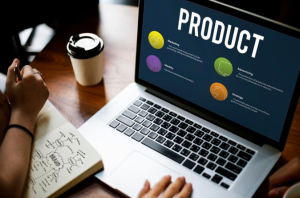Introduction
If you’ve ever wanted to become an author, but found the process of finding and working with a publisher to be too exhausting, self-publishing through Amazon PPC Services has never been easier. This is because Amazon’s publishing platform provides an attractive method for new and aspiring authors to transfer their great ideas from their heads onto paper.
As is increasingly the case in the modern era, the power to create what you want, when you want only takes a few steps. However, it’s important to know these few steps so you’re not caught unaware as you’re trying to publish your breakout novel.
Be sure to follow along below to turn your everyday literary dreams into a reality that springs from the page into life.
How Does Amazon Self-Publishing Work?
With Amazon Kindle Direct Publishing, authors will be able to publish their books and passively sell the product in a straightforward process on Amazon PPC Services.
When authors decide to publish in this manner, they’ll be required to prepare their manuscript in a digital format that is compatible with Amazon (such as MOBI, DOCX, or EPUB).
Once this is done, authors can log into their Amazon KDP account to select the type of book they wish to upload. This involves picking relevant categories they want to book to be classified as.
By following the instructions to self-publish your book (which are discussed in greater depth later in this article), new and old authors can publish their books on Amazon relatively quickly.
Self-Publishing vs. Traditional Publishing
While it can be difficult to decide to self-publish or go through a traditional publisher, we’ve laid out the pros and cons of each to make the decision easier for you:
Self-Publishing
Pros
- You’ll have complete ownership of both the rights and royalties
- You can customize your book to a far greater extent
- It only takes 6 months to get to the market
- You’ll be able to completely control the marketing for your novel
- Unlike traditional publishing, you’ll have creative control over the entire novel
- No one will be able to tell you what you can and cannot include
- The ability to write books for different niches rather than being railroaded into one
Cons
- You’ll need to guarantee that your book is good in every way rather than rely on an editor to help you
- It takes a very long time to manage the entire selling process (not just writing the novel) yourself
- Hiring outside help can be expensive
- It either takes a lot of money or a lot of work to get the process right
Traditional Publishing
Pros
- You’ll receive a monetary advance before the book is published
- The publisher will provide the money to publish the book in a professional way
- A greater chance that your book will be covered by the media
- A higher possibility for your book to be in bookstores
Cons
- Very hard to get a deal with a publisher (less than 1% of proposals are accepted by publishers)
- An incredible time investment due to an overly complex system
- Takes a long time to make it to market (around 2 years)
- You won’t own any of your manuscript rights
- You won’t have any control over the way your book is marketed
- Limited creative control over the contents of your novel
- Reduced financial gain
- The inability to write books in different niches
How to Self-Publish a Book on Amazon KDP in 3 Easy Steps
1. Create an Amazon KDP Account
The first thing you’ll need to do when self-publishing on Amazon PPC management is to create an Amazon KDP account by visiting kdp.amazon.com. Once there, click on either ‘Sign In’ or ‘Sign Up.’ The one you select will depend on whether you have an existing account with them or not.
If you already have an Amazon KDP account, you can then use it to sign into the KDP system to start creating your book.
If you do not have an account, you’ll have to make one, but don’t worry, the process does not take too much time.
Sign in to your Amazon account. This is not your KDP account but the account you use to buy Amazon products.
Since you’re signing up with KDP, you’ll need to read and accept their terms of use. Be sure to understand what Amazon KDP is before accepting.
Once you’ve accepted, you’ll then notice your Amazon Author dashboard. From here, you’ll be able to put the various pieces of your book together to create a winning novel.
2. Create a New Kindle eBook and Fill out the Details
Once you’re on the Amazon Author dashboard, click on the ‘Kindle eBook’ option, which will then take you to the page where you’ll add technical details of your novel, as well as the novel itself.
Select Language
A simple first step in self-publishing your book is simply to select the language you want your book to be available in. This is most usually the primary language you, the author, speak.
Book Title
Now, you’ll have to enter your book’s title—-as well as the subtitle, if it has one. Make sure that it’s attention-grabbing and makes the potential reader curious as to the events of the novel. Choosing a great title takes time, so don’t be afraid to spend a lot of time on this step.
Enter Your Name
Another easy step, enter your name, which will then be displayed on the cover of your book. Keep in mind that pen names are allowed, too, if you do not wish to use your real name.
Verify Publishing Rights
Depending on whether you have publishing rights or not, select the appropriate option here. This section also has a helpful dropdown for those unsure which option they should select.
Choose the Keywords
A hugely important step that’ll help your book gain visibility on Amazon, input up to 7 keywords that you’re planning on using to promote your book. If you’re not sure how to find organic keywords or even what they are, we’ll be discussing these in more depth later on in this article.
Choose the Book Categories
With this option, you’ll be able to select up to three categories you want to classify your book. These categories should be carefully considered based on category competition and what your book is about.
Set the Release Date
While seemingly easy on the surface, choosing a release date for your new book is an important step, since the popularity of certain categories rises and falls throughout the year. Be sure to research other books in your chosen category to find a release that will help guarantee your book’s success.
3. Upload Your Book
Once the Kindle eBook details section is finished, you can move on to the more creative part of the process: the content!
Upload the Book Copy
In this section, the first thing you’ll have to do is upload your finished manuscript. A few different file types are available (DOC/DOCX, KPF, MOBI), although we recommend sticking with the EPUB file as this meets the specifications needed for KDP.
Upload Book Cover
The next step is to upload your book cover in either a JPEG or TIFF format. However, if you don’t have a book cover prepared, there are multiple ways to create one. The first, and easiest, is to use the Cover Creator tool on Amazon KDP, conveniently located in this section. The other ways you can create a cover involve hiring an artist on freelance.com, upwork.com, or another site.
Keep in mind, though, that revisions between you and the artist you choose will most likely occur, so remember to be patient as you work to create an excellent cover.
Preview book
Just to make sure your book looks good to the general audience, you’ll want to preview your Kindle eBook before publishing using this section. This can also be a great way to catch last-minute spelling errors, so don’t skip this step.
Create an ISBN and Select the Publisher
Unlike the previous step, creating an ISBN and selecting the publisher can be skipped for now, but you should come back and finish this step whenever you have time since it’ll help with your book’s digital metadata, making it easier for Amazon to categorize it.
KDP Select
If you love Amazon KDP and want to exclusively sell your book through them, you should choose KDP Select, since this will give you additional marketing options that you’ll find extremely helpful when launching your product.
Some of the great things about this program are that you’ll receive higher royalties at the end of the day, increased visibility to Amazon shoppers, and various promotional opportunities you’ll not want to miss. KDP can be great for serious marketers who want their book to be seen by as many people as possible, as soon as possible.
However, KDP Select does have its drawbacks, since you’ll only be able to sell your book with Amazon, receive varying amounts of money for their book (this makes it hard to earn a stable income), and experience a general loss of control over certain aspects of your book, which is an immediate deal-breaker for some established authors.
Choose Your Royalty and Pricing
Here, you’ll be able to choose between a 35 or 70% royalty. If you want to be paid more each time your book sells, you’ll want to choose the 70% option, but you’ll have to deal with pricing limitations and an alternate royalty calculation that may be harder to understand.
Additionally, if you select the 35% option, you’ll be able to avoid the delivery fees that are deducted from your royalties and gain a potentially wider audience by setting your price low, attracting those who do not have much money to spare on more expensive books.
The downside of choosing the 35% option is that you’ll have to set your book’s price within a limited range while having a lower royalty percentage than the 70% option at the same time.
Conversely, choosing the 70% option means that you’ll get a high royalty percentage from sales, have a greater pricing range ($2.99-$9.99), and have a higher earning potential.
Although, it’s not all great, since authors who choose the 70% royalty option will have to deal with added delivery costs and territorial restrictions (meaning your book will only be available in certain countries, leading to fewer sales).
Once you’ve chosen your royalty rate, you’ll then want to set the price you want to sell your novel. Keep in mind that you do not have to think about prices in markets outside of your country, since Amazon will set the appropriate price according to the exchange rates.
Save as a Draft or Publish
The final step is to simply save your book details as a draft which you can come back to later, or publish your book now. If you choose to publish your book now, make sure to research the current market for your particular book to see if it’s a good time to start selling it.
Pro Tips for Being Successful with Amazon Self-Publishing
1. Choose the Right Genre
The first thing you will have to do when deciding to self-publish on Amazon is to pick a genre. Even if you’re familiar with most of the different book genres, you should still take the time to review them all, take notes on popular books within each, and do a thorough investigation of the best ones.
This last can be quickly done with the X-ray feature on the IndeedSEO Chrome Extension. Using this helpful feature, you can investigate the sales numbers for individual novels to see what people liked (and didn’t like) about them.
2. Add Value to the Conversation
Above all, the most important part of a book’s success is the content. If your book is not written well or does not have great content, then it may not be successful.
To ensure your book’s success, reach out to professors or any contacts you know who either read a ton or have experience reviewing copy.
3. Conduct Thorough Keyword Research
No Amazon listing, including self-published book listings, should ever be without proper SEO keywords. These keywords go into your listing title, bullet points, description, and other pieces of your listing copy to heighten your product’s visibility, ensuring that it is seen by more shoppers. Great tools that you can use to find these keywords and conduct effective SEO research are Magnet and Cerebro.
Magnet, in a matter of mere seconds, can easily collect hundreds, if not thousands, of keywords that will help boost your book’s traffic on Amazon.
Suppose you already have a competitor in mind who has created a very similar book to your own. In that case, you can use Cerebro to discover the keywords they’re currently using, add them to your SEO keyword database, and help your book be seen by more Amazon shoppers than theirs.
4. Optimize Your Listing With A+ Content
It’s a great idea to add A+ Content to your detail page, as the enhanced visuals, more detailed descriptions, better search visibility, and heightened conversion rates make it so much better than using the regular content that most Amazon sellers utilize.
If you choose to add A+ Content to your detail page, you can easily find it under the section titled ‘From the Publisher.’ However, the exact location of this section varies, but most readers will have to scroll down to find it regardless of its precise location.
To create this A+ Content, you’ll want to head to the KDP Marketing page, click on the ‘A+ Content Manager’, and layout & submit your content.
Just as important as the A+ Content, you’ll need to create an effective description of your book using SEO keywords. While this can be challenging, to say the least, the process becomes much simpler with the Listing Builder tool.
This powerful tool will allow you to receive winning keyword suggestions that will help your book become more visible to a wider Amazon audience, increasing your sales and ultimately, your profit.
5. Leverage Your Existing Audience to Collect Reviews
Both good reviews and constant sales velocity are important aspects of success with Amazon self-publishing. To start gaining these reviews, consider asking your family and friends to buy, read, and write reviews which will then show up on your product page.
Furthermore, if you choose to enroll in the optional KDP Select program, you’ll be able to offer your friends and family discounts on your book.
6. Run Amazon PPC Ads
If you’re starting from square one, or if this is your first book, it’ll most likely be difficult to gain a large amount of visibility that can lead to sales, so it’s highly important to run PPC ads for your chosen keyword targets to help you gain that crucial exposure.
7. Leverage Paid Social Media
When you effectively leverage paid social media, you’ll be able to run ads directed at a specific target market. For example, if you wrote a book about the benefits of hard work and mental toughness, you could then run social media ads for those who follow Jocko Willink, David Goggins, or another influencer in the space.
Additionally, you should also focus on messaging or, put another way, the pain points your audience is experiencing every day and how your book will help them push through to eventual happiness. To create your effective messaging, leverage tools like Eleven Labs, InShot, iMovies, Midjourney, and more to create content that people want to see.
8. Create an Audible Version of the Book
It’s a fact that a growing number of people would much rather listen to an audiobook than take the time to sit down for hours and read. This is especially true if they already have a full-time job and family.
The revenue stats from audiobooks are also up and, according to statista.com, the general audiobook revenue between 2018 and 2022 was 1.75 billion dollars! That already impressive number can only be expected to have risen since then, so we recommend that you look into creating an audiobook version of your book to capitalize on this growing trend.
Conclusion
Ultimately, it’s important to remember that every step you take—from selecting that first great idea to engaging your your audience—will contribute to your lasting success.
With IndeedSEO, your hero’s—or should we say ‘authors’–journey will only be limited by the confines of your imagination. Take the first step on the path to both success and fulfillment to become a published author in this increasingly large and lucrative space.



